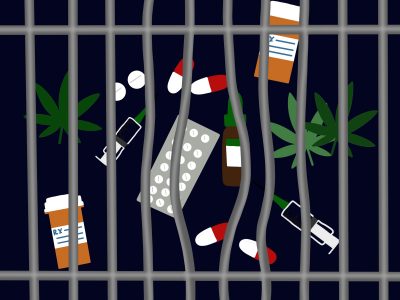President Joe Biden recently pardoned thousands of people convicted for federal marijuana offenses, following years of activism and lobbying for the drug to be decriminalized on the federal and state level.
Though many states have decriminalized marijuana, the federal government still classifies it as a Schedule I drug — the most severe scheduling. While these pardons are not a law change regarding marijuana on the federal level, they are the next best thing.
However, in general, the drug reform movement has stalled when it comes to other drugs like heroin and cocaine. In Massachusetts, for example, simply possessing heroin can send someone behind bars — up to two years for the first offense and five years for the second offense.
Imagine this — you are at home and you start to feel sick. You start to cough up blood and go to the hospital. After they run some tests, the doctor comes in and says you have been diagnosed with lung cancer.
You are dumbfounded and don’t know what to do. You ask the doctor what the next steps are for treatment, but before he can respond, the police barge in. They arrest you and throw you in jail. You are later convicted for having cancer.
You might get sentenced to prison, you might get sentenced to a treatment facility — that’s up to the judge. You will certainly be on probation. You better not be caught with your disease again, or the court won’t be as lenient. Whatever happens, you will have a criminal record for the rest of your life. All for having a disease.

This is how we treat drug addicts. We view them like they have a moral failing and deserve to be punished, not like they have an illness that requires treatment. Giving therapy to an addict saves their life, locking them in prison is a death sentence.
Treating drug offenders is cheaper and more effective at rehabilitation than sentencing them to jail or prison.
When it comes to saving money, the choice is clear. According to the ACLU of Massachusetts, imprisoning someone for a year costs the state $53,000. Giving someone treatment for a year, while it can vary, can cost less than $2,500. Also, according to the Justice Policy Institute, for every one dollar the taxpayer spends on non-prison therapeutic treatment, the taxpayer yields $8.87.
When it comes to saving lives, the choice is clear. According to a study in the New England Journal of Medicine, prisoners have a very high rate of overdose and death following their release. Overdose is the leading cause of death for former prisoners, and within the two weeks of release, the death rate is 12.7 times that of the average person.
Treatment, like Medication-Assisted Treatment, or MAT, where addicts are treated with prescribed medication and therapy, have very high success rates. MAT has reduced the death rate of those with opioid addiction by more than 50%, and up to 90% of people who use MAT reach a two-year sobriety rate.
In the Washington D.C. area, there was a program called Second Genesis. From 1969 through 2014, it ran treatment programs. Some people who were sentenced to prison were given the option of attending the treatment program in lieu of their sentence.
These programs had very little to no cost for attendees. The director of the program Sidney Shankman gave some insight that resonates to modern day Boston. He said, “Addicts are used to instant gratification…When a person reaches out and you say no to him, that person is being condemned to a living hell.”
Sidney Shankman was my grandfather. His organization saved an estimated 30,000 lives over the course of 45 years. We need more of those programs. Programs that are affordable, accessible, and effective.

